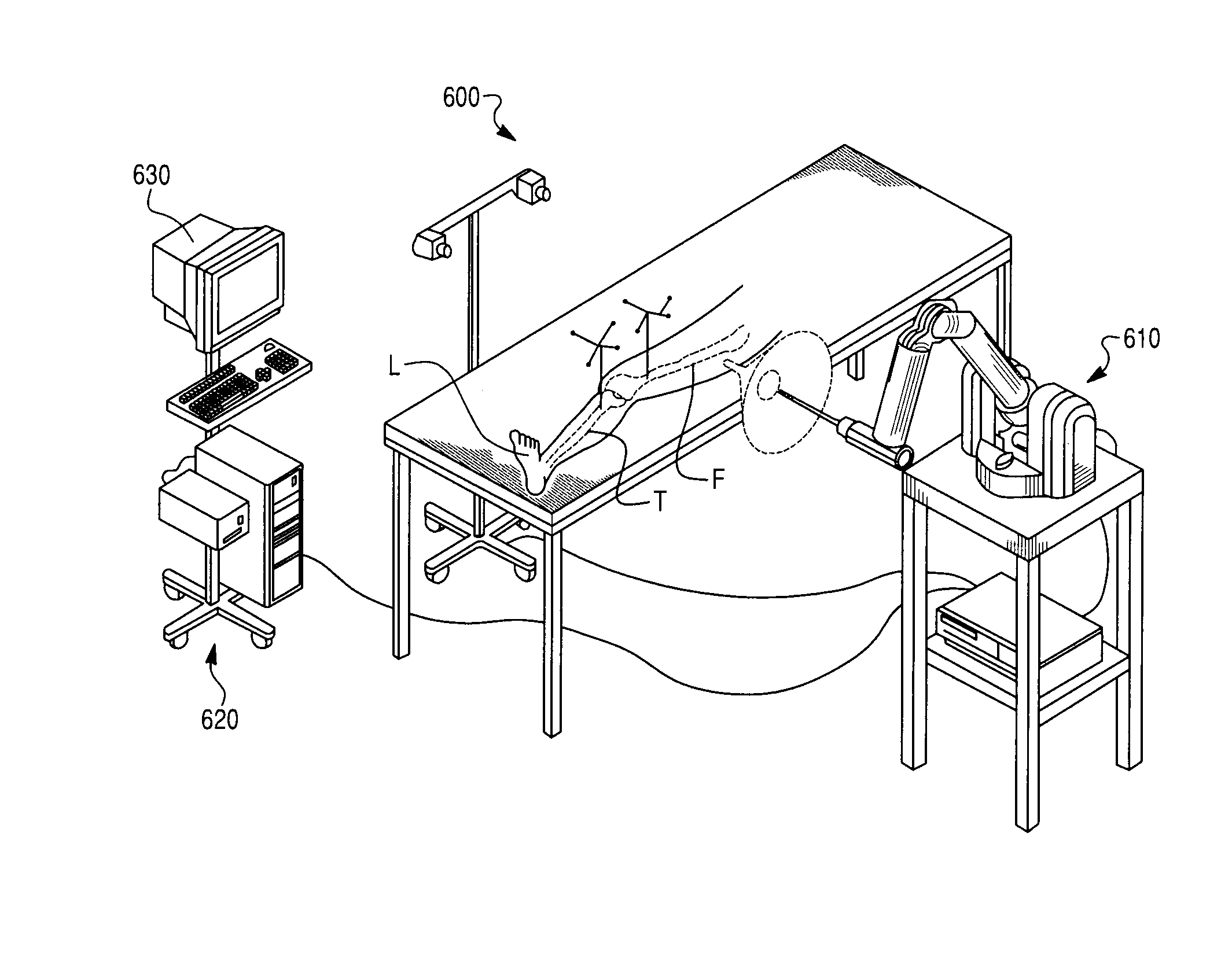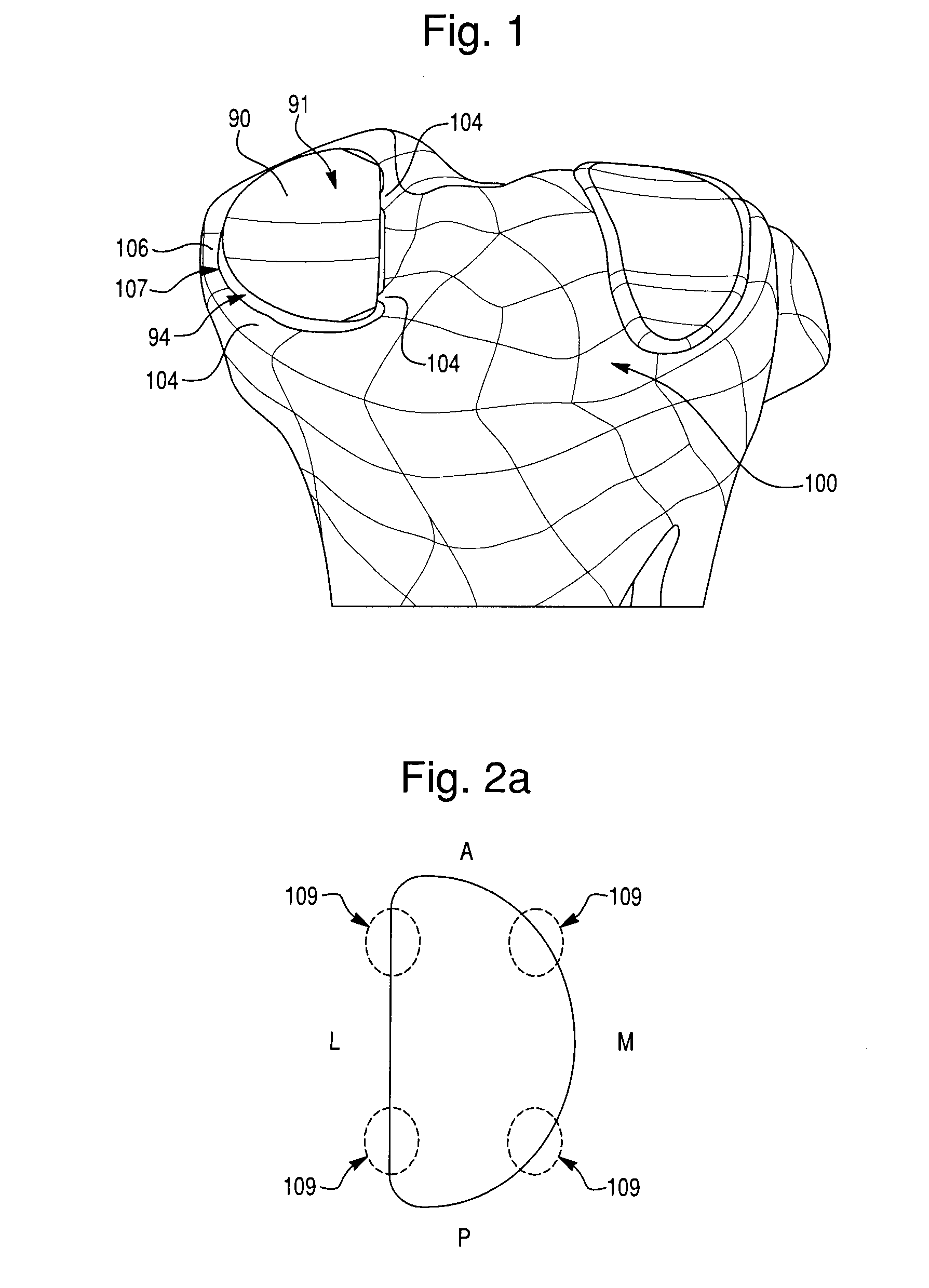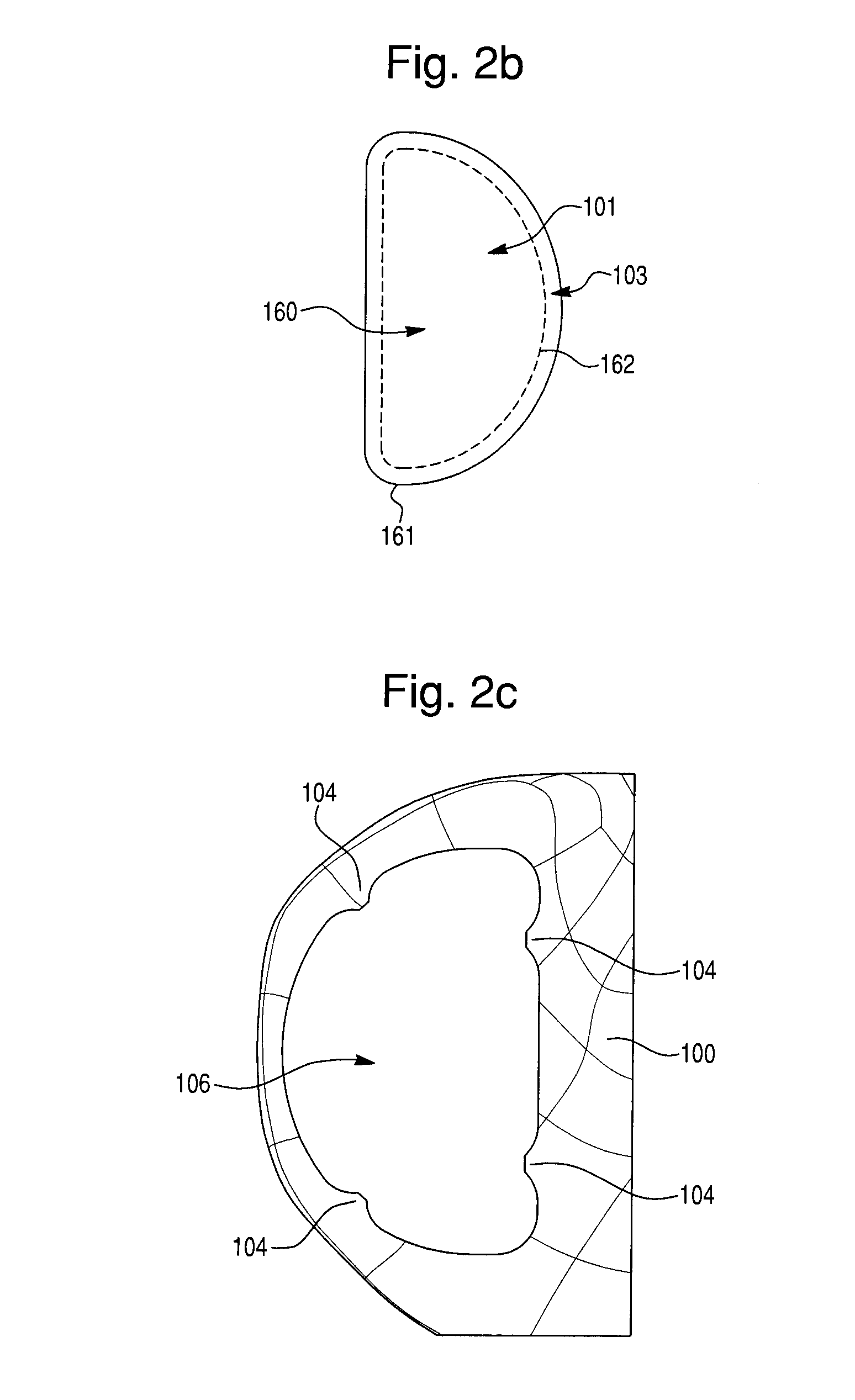Prosthetic device, method of planning bone removal for implantation of prosthetic device, and robotic system
a prosthetic device and robotic system technology, applied in the field of prosthetic devices for implantation, can solve the problems of unfavorable movement of the prosthetic device relative to the bone, less than fully constrained prosthetic device, and unwanted movement of the tibial inlay
- Summary
- Abstract
- Description
- Claims
- Application Information
AI Technical Summary
Benefits of technology
Problems solved by technology
Method used
Image
Examples
Embodiment Construction
[0080]Presently preferred embodiments of the invention are illustrated in the drawings. An effort has been made to use the same or like reference numbers throughout the drawings to refer to the same or like parts.
Overview
[0081]The preferred embodiments relate, in general, to methods for planning bone removal to allow implantation of a prosthetic device to create a constraining relationship between the bone and the prosthetic device. The preferred embodiments also relate to prosthetic devices that are configured to achieve such a constraining relationship and a robotic system that can be used to facilitate the creation of such a constraining relationship.
[0082]In general, the methods for planning include storing data representative of the prosthetic device in a computer readable medium. The methods further include defining, based on the data, at least one bone-cutting pattern for (i) removing a first portion of bone in a first area sufficient to seat a body portion of the prosthetic ...
PUM
 Login to View More
Login to View More Abstract
Description
Claims
Application Information
 Login to View More
Login to View More - R&D
- Intellectual Property
- Life Sciences
- Materials
- Tech Scout
- Unparalleled Data Quality
- Higher Quality Content
- 60% Fewer Hallucinations
Browse by: Latest US Patents, China's latest patents, Technical Efficacy Thesaurus, Application Domain, Technology Topic, Popular Technical Reports.
© 2025 PatSnap. All rights reserved.Legal|Privacy policy|Modern Slavery Act Transparency Statement|Sitemap|About US| Contact US: help@patsnap.com



